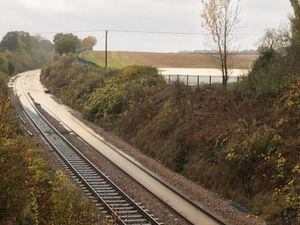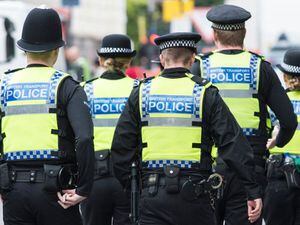Union warns of ‘terrifying consequences’ of adverse weather on rail network
The warning came after reports last week of the collapse of part of the Aberdeenshire rail bridge close to the site of Stonehaven train tragedy.

A trade union has warned of the “terrifying consequences” that adverse weather could have on train services.
The Rail, Maritime and Transport union (RMT) has written to Network Rail raising concerns that there is not sufficient resilience to poor conditions which could endanger passengers and workers.
The warning came after reports last week of the collapse of part of the Aberdeenshire rail bridge close to the site of Stonehaven train tragedy which saw three people die in August.
RMT general secretary Mick Cash said: “Whilst rail workers have been battling in appalling conditions to keep rail services moving, it is shocking that even after the Stonehaven tragedy Network Rail have not been able to identify with us what areas of the railway are at risk from adverse weather conditions and what steps are being taken to reduce that risk.
“Network Rail need to provide answers and action before we have another tragedy.”
Train driver Brett McCullough, 45, conductor Donald Dinnie, 58, and passenger Christopher Stuchbury, 62, died when the 6.38am Aberdeen to Glasgow Queen Street ScotRail service derailed in Aberdeenshire after hitting a landslip on August 12 following heavy rain.
The union has called for clarity on whether a UK-wide rail register has been fully developed which identifies what areas of the railway are at risk.
This includes the danger of landslips or flooding as well as what are the threats to passengers and workers.
RMT said it is seeking answers as to whether enhanced inspection and maintenance regimes are in place to protect resilience.
It also wants to know if safety and efficiency are being compromised by budgetary and resource constraints and the use of sub-contractors.
A Network Rail spokesman said: “We are very much aware of the challenges posed to our railway by climate change and an increase in extreme weather events.
“We are already making record investment to help us manage our cuttings, embankments, structures and drainage systems, and in the wake of the Stonehaven tragedy we took immediate action – for example inspecting higher-risk trackside slopes immediately and discussing with meteorologists how we can strengthen real-time information when there is extreme weather.
“We also asked experts Lord Robert Mair and Dame Julia Slingo to lead independent task forces to identify how we can better manage our huge earthworks portfolio and respond to severe weather events.
“Those reviews are nearing completion and we will consider all recommendations carefully. Our number one priority remains operating a safe and reliable railway while keeping our passengers and staff safe.”





